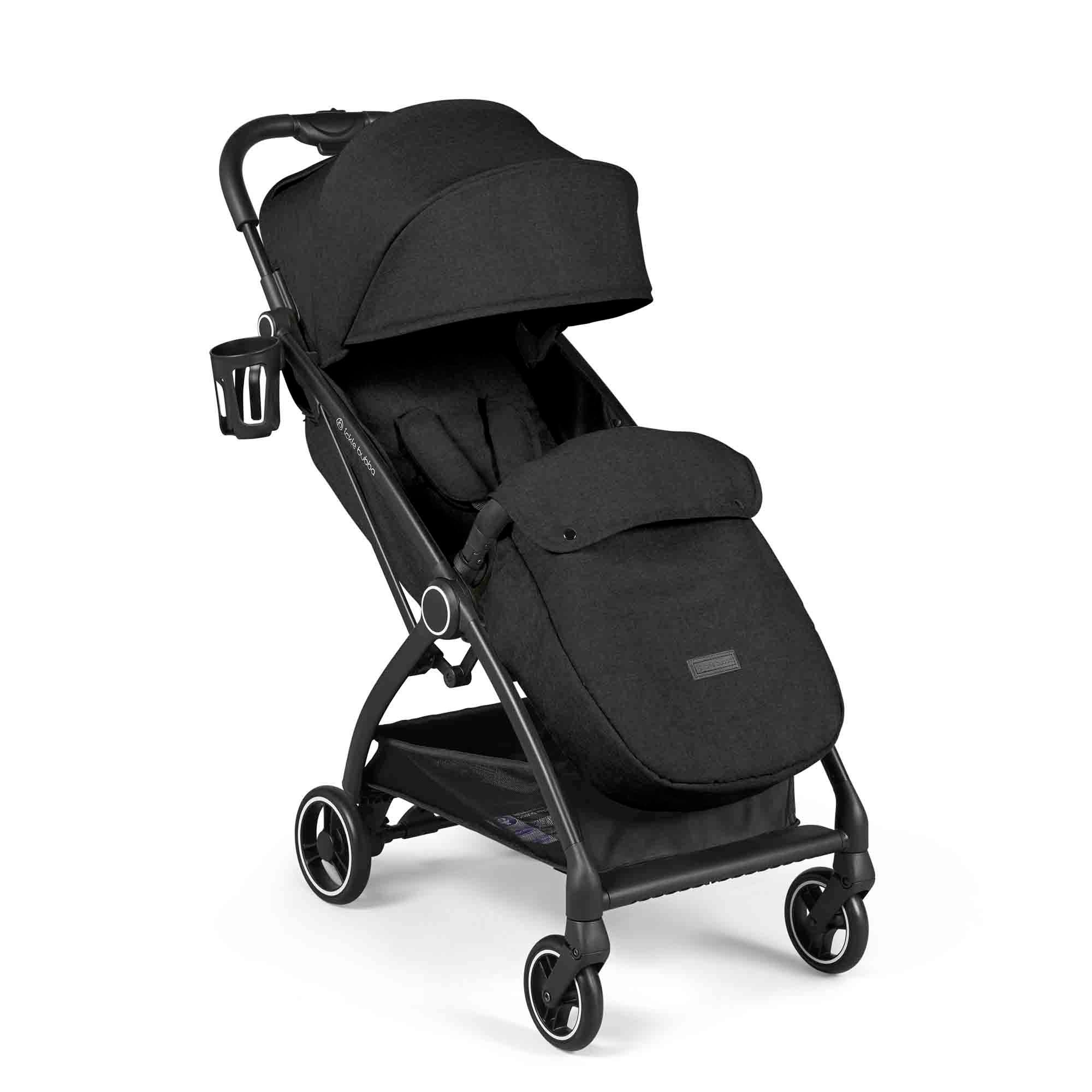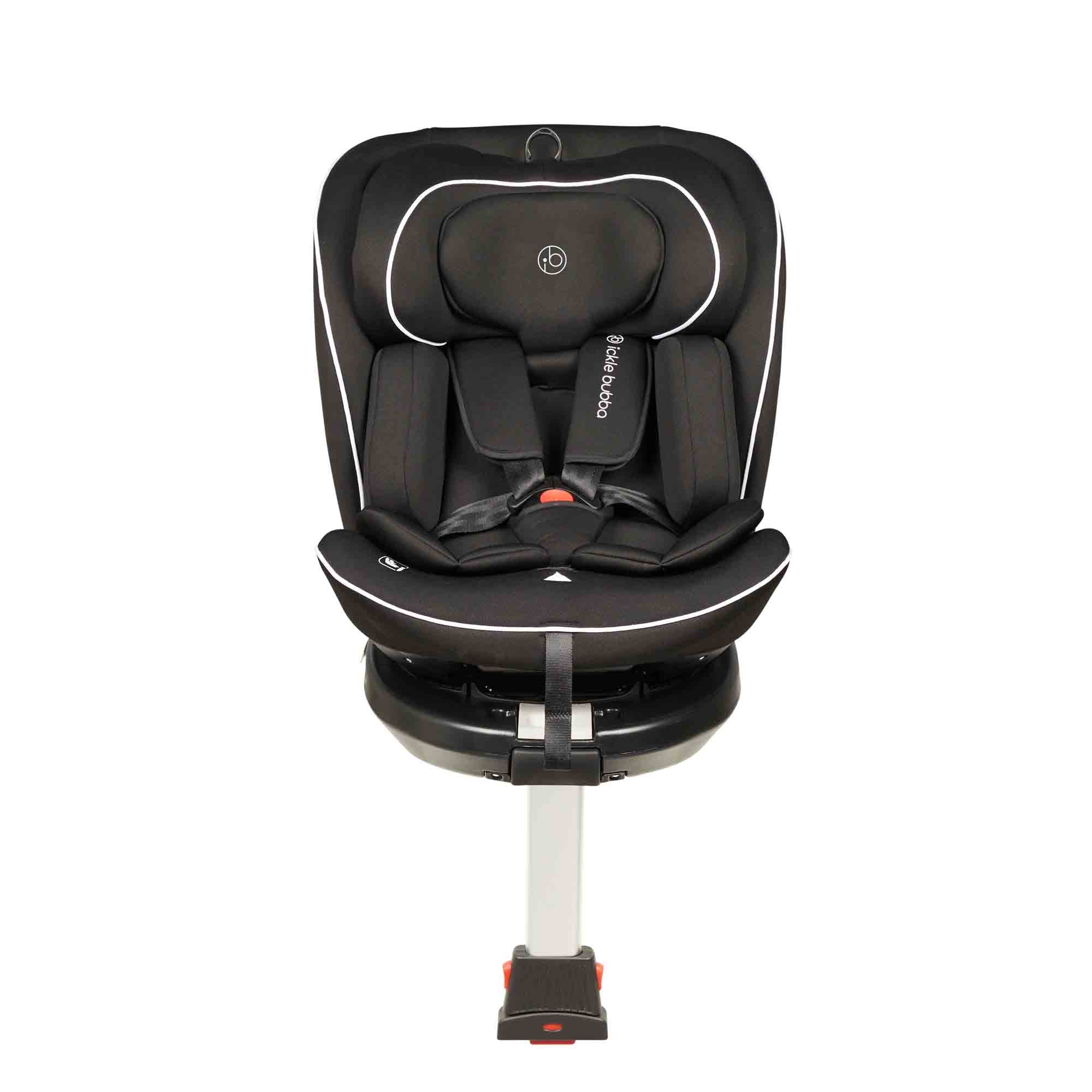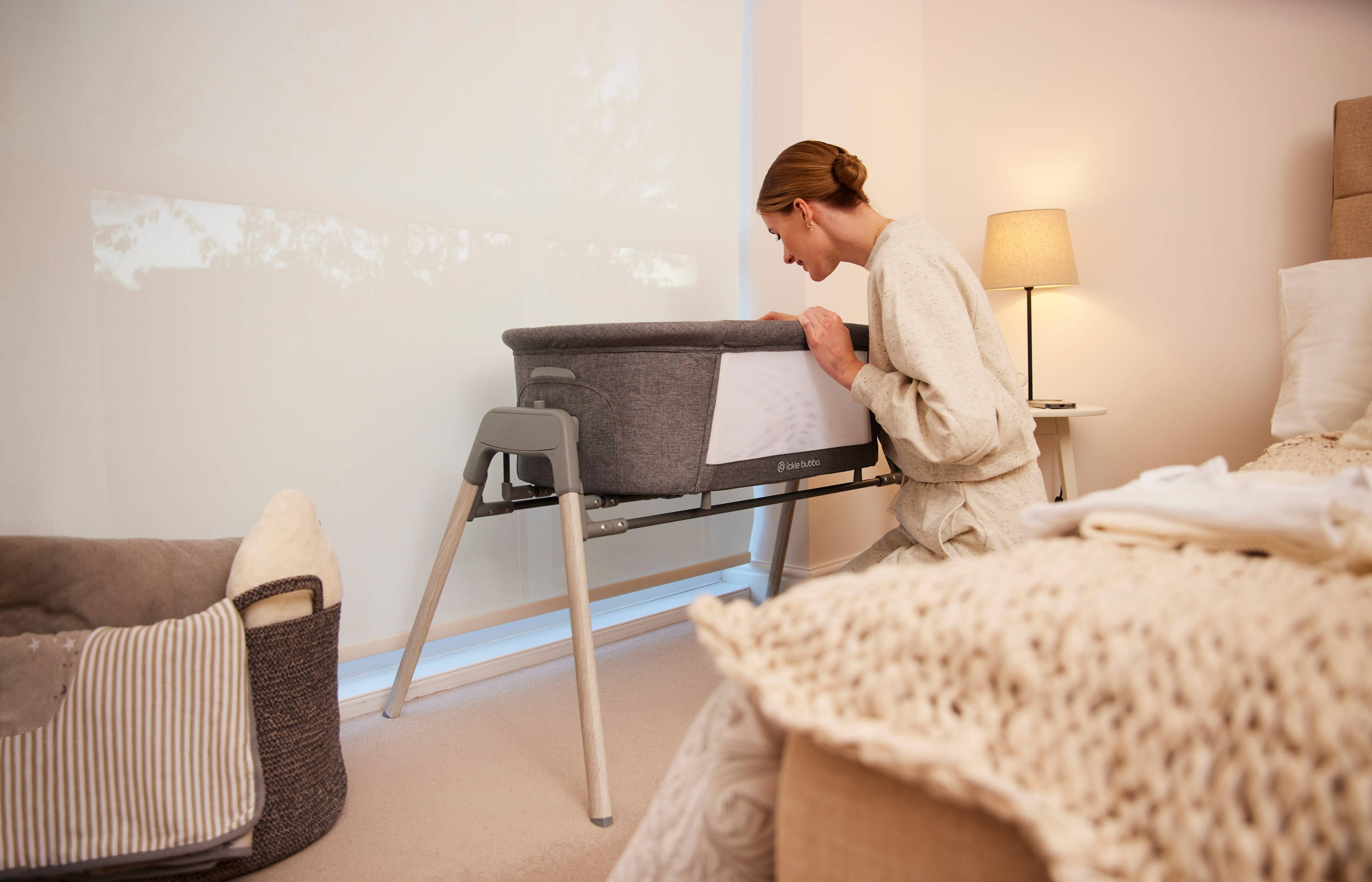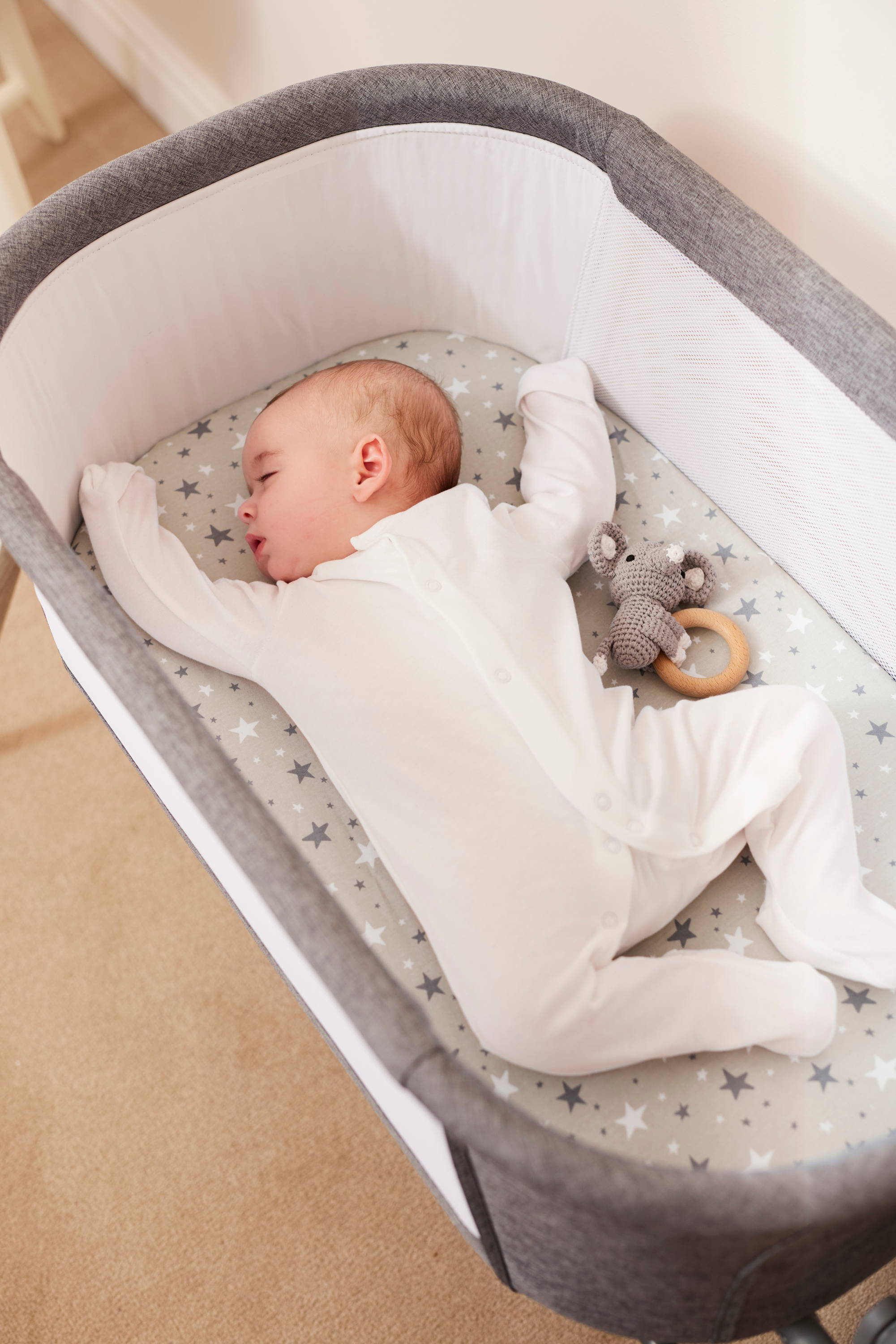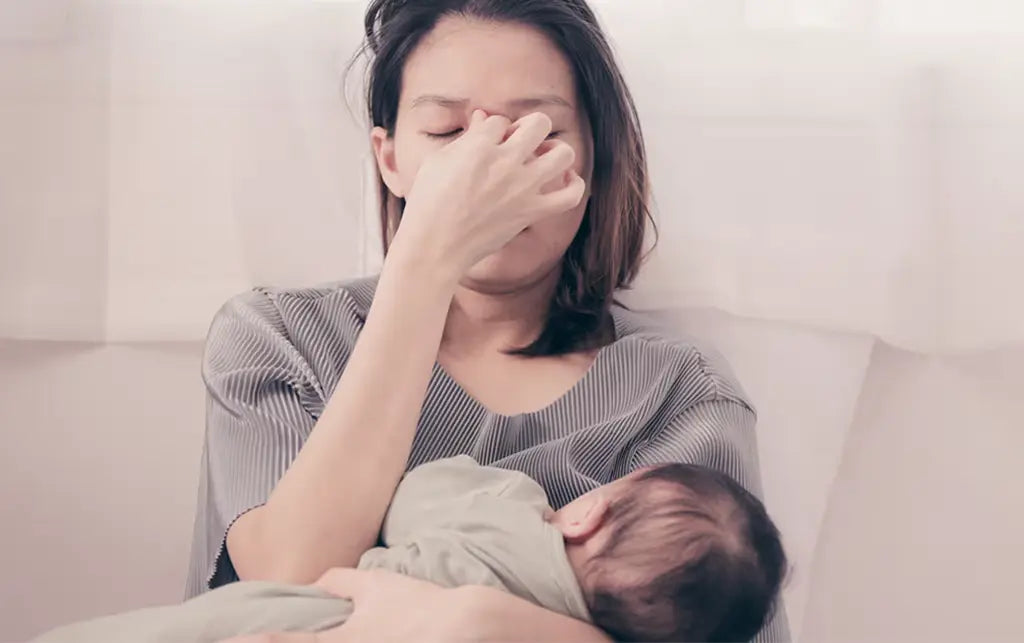Helping Baby Sleep When the Clocks Change
Interview with Emily Whalley, founder of Fox and the Moon.

Here at Ickle Bubba, we understand the value of a good night’s sleep, for both parents and baby. So, we wanted to help parents discover more about bubba’s sleep patterns, because we recognise the importance of sharing both information and advice, to help break down the taboo around struggling with little one’s sleep. With the clocks about to change, we wanted to bring in an expert to talk all things sleep.
We invited Emily Whalley, a specialist in Holistic Child Sleep and Wellbeing Support, back to discuss all things snooze based. Emily created @foxandthemoon_sleep, where she not only shares her own experiences, but gives help and advice to any parents in need. We spoke to Emily who gave advice on all your sleep related questions, as well as talked us through how to tackle the imminent Daylight Savings clock change.
So, Emily, with the clocks about to change, how do you adjust baby's schedule in advance to make minimal disruption?
People aren't going to like this answer, or maybe they will like this answer… But I think we panic about the clock change because, if sleep is going well at the moment, we think it's going to make it go backwards. So, I guess to answer that question, I just want to firstly give a bit of reassurance. We're led to believe that babies and children need strict routines, and naps, and bedtimes at the same time every night. But children's sleep needs change dramatically, especially in the first two years. If you think a newborn will have 18 hours of sleep in a 24-hour period, but when they get to around two, this drops to around 13, 14 hours. And every child has their own sleep needs. So, if you want to prepare, I think the best thing to do is think about what your child is doing now. If they do follow quite a rigid routine and they've got themselves into that already, just start tweaking the timings of it, in the week until the clocks change.
My general advice to everybody is see what happens the day after the clock change, because it's a lot easier after it's happened to tweak rather than beforehand. When I say if your baby is on quite a time schedule now, yes, you could kind of start pushing naps back by 15 minutes each day, but then you might end up with a really tired baby and you might just find the week before the clock change really stressful. So, my advice, if your baby is kind of following a set pattern, is to just do it the day before, try and make bedtime that little bit later or earlier, depending on what time you want your baby to wake up in the morning. But like I've said, the best way to do it is after, because we can make this a lot worse in our own head than it's going to be.
Okay, that probably leads quite nicely onto the fact that it's going to be lighter and darker at certain points of the day. So, for the children that wake early, might this help because it's going to be hopefully a little bit darker on a morning?
Yes, exactly. So, what you might need to do following the clock change is maybe invest in a blackout blind, or you can get sheets of blackout material that you can just stick or Velcro onto the window frame before bedtime to make nighttime and bedtime a bit darker - if your baby is sensitive to that. We know that a dark environment helps us produce melatonin, which is the hormone that we need for sleep. So those things are always worth doing. I know that my youngest is very sensitive to light in the room, so that's what I would be doing for his bedtime kind of leading up, and obviously through the summer months as well.
And what is your advice on things like sleep devices, and things like that? Do you think they're quite helpful?
Yes, and my biggest passion is finding out why a baby is unsettled and helping them sleep, as well as educating parents about things like feeding, Yeah, I think that children must have a really good cognitive understanding of what that's being used for, and I think they can be helpful to let the child know whether it is morning or whether it's time to get up. They don't tend to work for early rising if early rising is happening for a reason. So, a lot of what I do is to work out why such a thing is happening, rather than focusing on kind of behavioural strategies and techniques. And obviously, the blue light from those clocks can interfere in melatonin production. But I think some of them do have the option to just turn the low blue light on, such as the Lumie Bed Bug. So, if they work for you, if you want to try them, brilliant. But I wouldn't stress too much if they don't work.
Moving on to more generic sleep questions, we’ve been asked, “should nap times and bedtimes be changed for an eight-month-old?
At eight months old, your baby is probably on three naps, possibly two naps. And I think what I would advise in that situation is, if you're preparing for the clock change, the day before is to either add on an extra nap and make bedtime later or make bedtime earlier that day. But either way, the clocks are changing, it's going to be a different time in the morning. So again, the best thing to do is to see what happens the day of or the day after, I should say, and then adjust your day. So obviously the clocks are going forward. So, if your child normally wakes at six, it might be seven. All you would do to then kind of get back on track is keep their nap or wake windows a similar time that they usually are and do bedtime at a slightly different time than you would have normally. Just like if you were going on holiday and you wanted them to enjoy a meal with you later at night, you would add an extra nap in to increase sleep. So that sleep pressure can build then to a later bedtime. And it's the same kind of thing.
With holiday season coming up, there's going to be time zone differences in destinations. How would you prepare for that?
It depends on how different the time zone is. A couple of hours probably won't make that much of a difference. And all you would do to kind of help your baby adjust to that is take a nap away or add a nap in so that they make it to that extra bedtime. But don't disregard the importance of daylight in those situations. So, let's say 07:00 a.m. Wherever you are on holiday is actually 03:00 a.m. UK time. The best thing to do is to wake your baby at the same time every morning, which is a good piece of advice to have in general, if you want to kind of get some consistency with your day and expose them to natural daylight within half an hour of them waking to just reset their circadian rhythm. And that helps with adults, too. If you want to get onto a different time zone, daylight in your retinas is the best thing to do.
And moving back to another more general sleep questions… what about self-settling? How would you advise getting a baby to do this?
I feel like we're setting parents up to fail with this advice, and it's hard to come on to a platform if you don't know the type of work that I do, to hear from a sleep coach that you do not need to strive for a self-settler. Children's brains do not have the capability of being able to go from 100 to zero on their own without some parental intervention to help them calm down. We all have different temperaments; we all prefer different things. We might be more relaxed in nature. We might be more highly strung in nature. If you've got a very relaxed baby who quite naturally soothes or settles themselves to sleep, brilliant. It might not always be that way as they go through cognitive changes. Part of what I do is if somebody is struggling with sleep issues and their child is waking up every hour, the answer isn't because that child has got used to being responded to. If a child is waking hourly or more, there is a real reason for that. So that's what we kind of explore. And I will never ask a parent to try for self-settling or change the techniques in how they're getting their child to sleep, to better sleep.
It's all about looking at what's going on through analysing a sleep diary and looking at what might need adjusting routine-wise to get sleep pressure higher, to drive better sleep. Or it could be identifying an intolerance or an allergy, or air swallowing when feeding from birth, tension and those kinds of things. So self-settling isn't something that is in my vocabulary. But I appreciate, obviously, nine years ago, I was a brand-new mum and I thought that that's what we needed to do and that's the only way we would achieve sleep. And it's simply not the case. Our children's brains just aren't mature enough to understand that what we're trying to do is help them fall asleep without any help. And if they're crying to signal for us to help them, ignoring them isn't the best thing to do to achieve that.
Okay, that's interesting. You mention keeping a sleep diary. For anybody really struggling with sleepless nights, how long would you say to keep that sleep diary going?
Yeah. So, I would always choose a sleep coach that asks for a sleep diary because in my opinion, you can't help a family without knowing what's going on. And it would be a bit of a red flag to me that a sleep coach didn't ask for a diary because that would make me think that they are going to focus on that self-settling and potentially traditional sleep training, which we know through recent research and historical research isn't the best thing for parents and children's mental health. So, yeah, keeping a track of things like the time your child wakes, the time and length of each nap, the time you start to get them to sleep for bedtime, and then the actual time that you manage to get them to sleep and transfer them. And then noting down any night wakings helps a sleep coach determine whether something does need to change sleep hygiene wise, or whether we have a really uncomfortable baby on our hands and we need to work out why that is.
We’ve all heard about ‘baby regressions’ but are there certain periods where your baby just might not sleep that well?
Firstly, teething and illness are always going to disrupt sleep, as is kind of change of routine or environment, starting childcare, big life changes. They're all going to have an impact like they would on us. I think the term regression gets banded around a lot, and I think if you were to type in any age and the word ‘regression’ into Google, there would be an article written about a regression at that age. So, these words that people are using and googling aren't necessarily meaning that during every month of a child's life, they're going to regress in their sleep. There are real reasons, physiologically, cognitively, why sleep would set back for a while. But what I say to parents is if sleep has always been a problem, it can't be blamed on a regression, because all a regression or a progression is, depending on the term you like to use, is a child going through quite an intense period of cognitive or motor skill, kind of skill learning and developing, which is going to make their brain very busy and more active at night.
The only true kind of physiological reason for regression is at four months when children's sleep cycles go from predominantly light REM sleep to then NREM and REM sleep. And that can make them feel a little bit disorientated at night. It's something that I hear a lot – “My child hit the four-month sleep regression. We've never recovered” - You have! That's not the reason. If your child is now nine months and still waking up very frequently, there's a reason behind that.
Thinking about naps, do varied naps during the day to accommodate different morning wakes and wake windows, confuse babies and affect their night sleep?
No, not necessarily. So, as I said at the beginning, sleep needs change dramatically. There does need to be a level of flexibility. If your child's had quite a stimulating morning or they've woken earlier than they usually have, then sleep pressure is potentially going to be a lot higher and they might need a longer nap in the morning or an earlier nap to compensate for that. Set naps and set bedtimes are counterproductive because if your child wakes at 07:00 a.m. one morning and you're trying for a 09:00 a.m. nap and they're ten months old, they might not be tired enough for that nap. And all that's going to do is stress you out as their parent. So, the best way to get some kind of predictability or routine to your day is having a set wake up time, waking your baby at the same time every morning. And if you're struggling to know what time, keep a diary for a week and see what the average wake up time is, and pick a time based on the diary, and that will mean that then naps will follow a bit of a similar pattern until the sleep needs to change again and you will need to compensate and change things around.
The only time sporadic naps would have an impact on nighttime sleep is if that child's had a lot of daytime sleep and sleep pressure and they've not got enough hours in the bank left to drive them through the night. Or if they've had kind of quite a late, long nap. You're not going to be able to get them to sleep easily at their normal bedtime. You're going to need to give that child or baby time to build pressure up to fall asleep.
Yeah, that makes sense. Fantastic. I'm sure there's a million and one more questions people want to ask you, but that's what your website offers. You've got so many different courses; do you help people with one-to-one sessions as well?
Yeah. Me and Molly, who works with me, we both offer one-to-one sessions. We have three different packages for one-to-one options. We also have a course for unsettled babies that are waking hourly and perhaps struggling with reflux. And we have a newborn, like a fourth trimester course, which is all about safe sleep and feeding and optimising sleep. But the way we work in general is finding the root cause, because you're not going to enlist a sleep coach unless you are really struggling with something. And if you're really struggling, there's a reason why that is. We know that infant sleep isn't linear, and it goes up and down and people are going to find periods of that harder than other parents, for example. And that's fine. I guess I would say that if you are absolutely on your knees, your child's been waking very frequently for as long as you can remember. There's something that we can do to help you.
Well, the fact that sleep is so individual is probably summed up by this next question…
“My baby is 22 months old and still doesn't sleep through the night. I’ve tried a 40-minute nap all the way to one and a half hours. Could there be something that's bothering my child?”
It all depends on how often your child's waking. If it's two times a night, let's say, and they're easily settled, everything is fine, you've no concerns. I would say that's quite normal. There isn't an age in which children must sleep through the night by. If your baby is waking every 2 hours or they're uncomfortable, they're shouting a lot in their sleep, they're quite clearly disgruntled or upset about something. It's probably nothing to do with you capping naps or timings of things. And yes, there could be a reason, and that could stem from low tongue posture and that not being optimal in terms of nasal breathing and our nervous system behaving as it should, it could be anything from low iron to magnesium to some food intolerances. Antibiotics can disturb children's sleep for a short period. So, yeah, without knowing how frequently your child's waking, it's hard to answer. It could be totally normal, what's happening, and it would depend on how often they're waking and the pattern of those wakes in your child's behaviour when they are waking.
Thank you. Hopefully that helps the parent who messaged in about their baby. So just finishing up then on next week's clock change. I'm sure that for anybody who might feel like they've got the perfect sleeping baby or toddler now, then they will still feel a little bit of dread for next week. So, would you like to just finish up on any final words of reassurance, Emily?
Yeah. The bottom line is that children adjust. And unless your child is very routine-focused with set naps and bedtimes, which a lot of children aren't, then trying to prepare for a clock change is going to just make you feel more stressed and it's probably going to make you dread it. And it could be nothing to dread at all. Worst thing that will happen is that they wake earlier that day, and you just add an extra nap in the day after to get them through to their normal bedtime. But just see how it goes. I think the best thing to do is nothing, actually! And yes, I could sit here and talk to you about how you can tweak routine up until the clock change. The best thing to do is to just see what happens and adjust it after because we've been doing this for hundreds and hundreds of years and sleep's never gone backwards forever because of a clock change. So please don't worry too much.
Thank you so much Emily.
For a whole host of sleep tips and expertise, make sure to give Emily a follow on Instagram - @foxandthemoon_sleep and find more great advice on her website.


